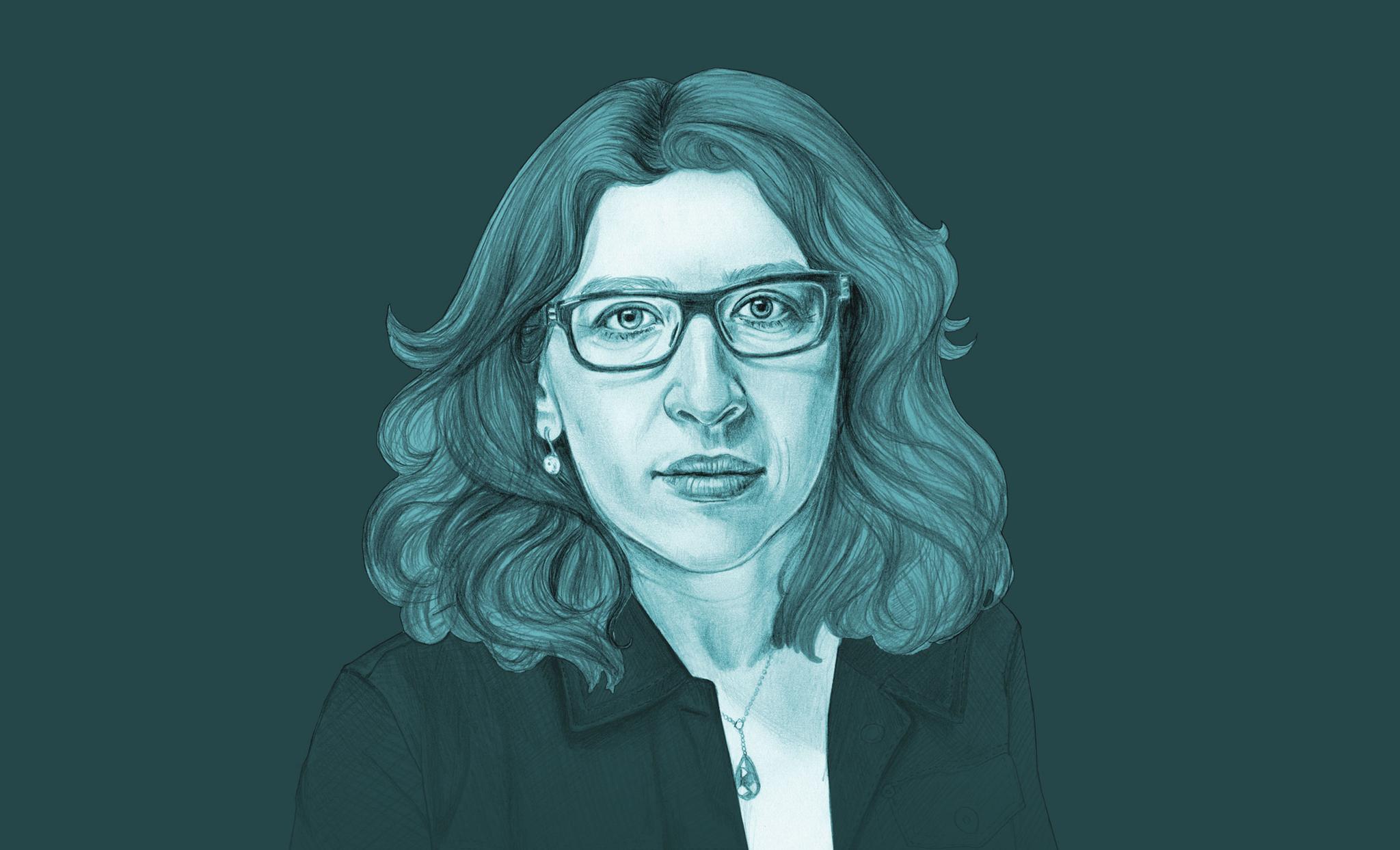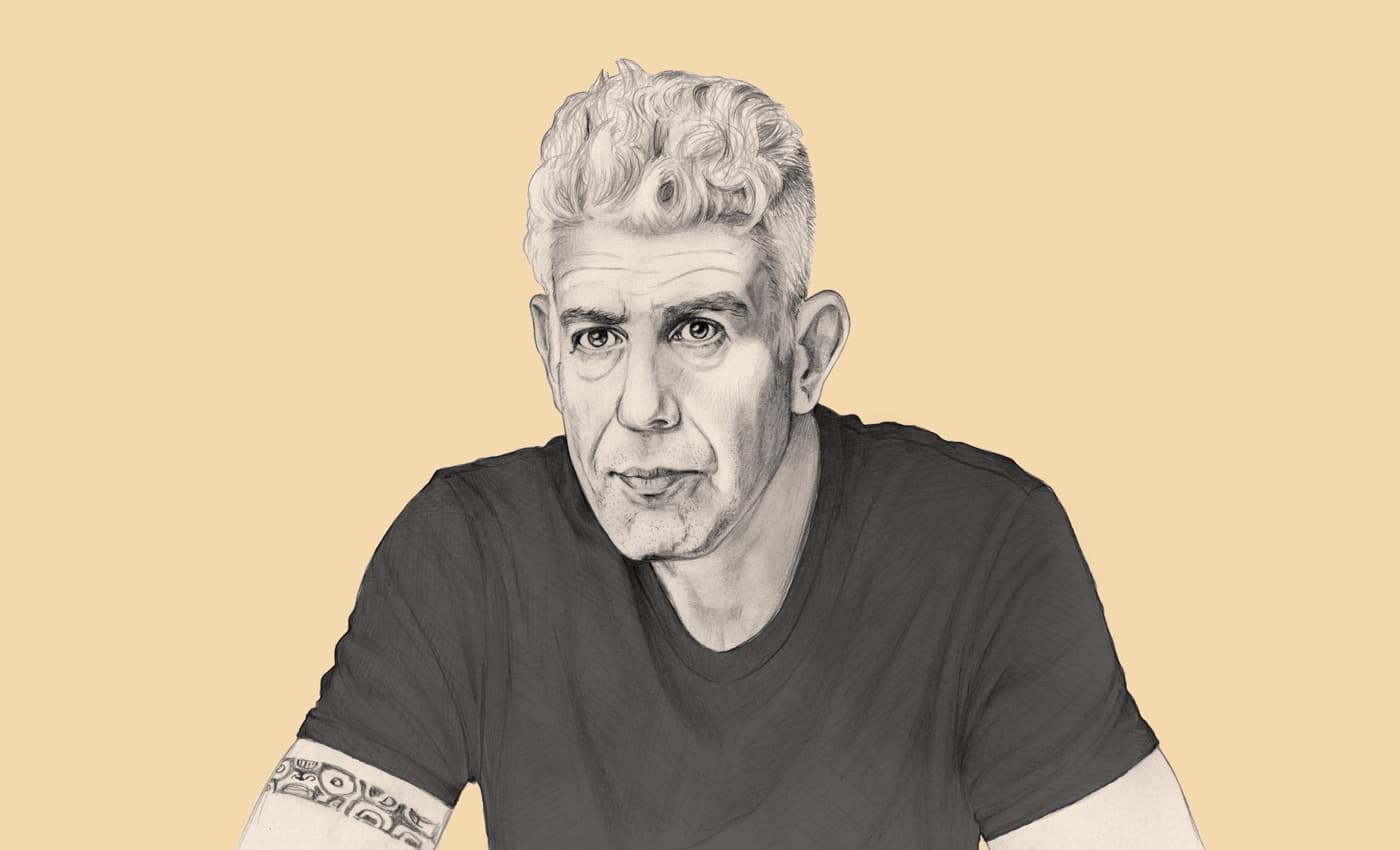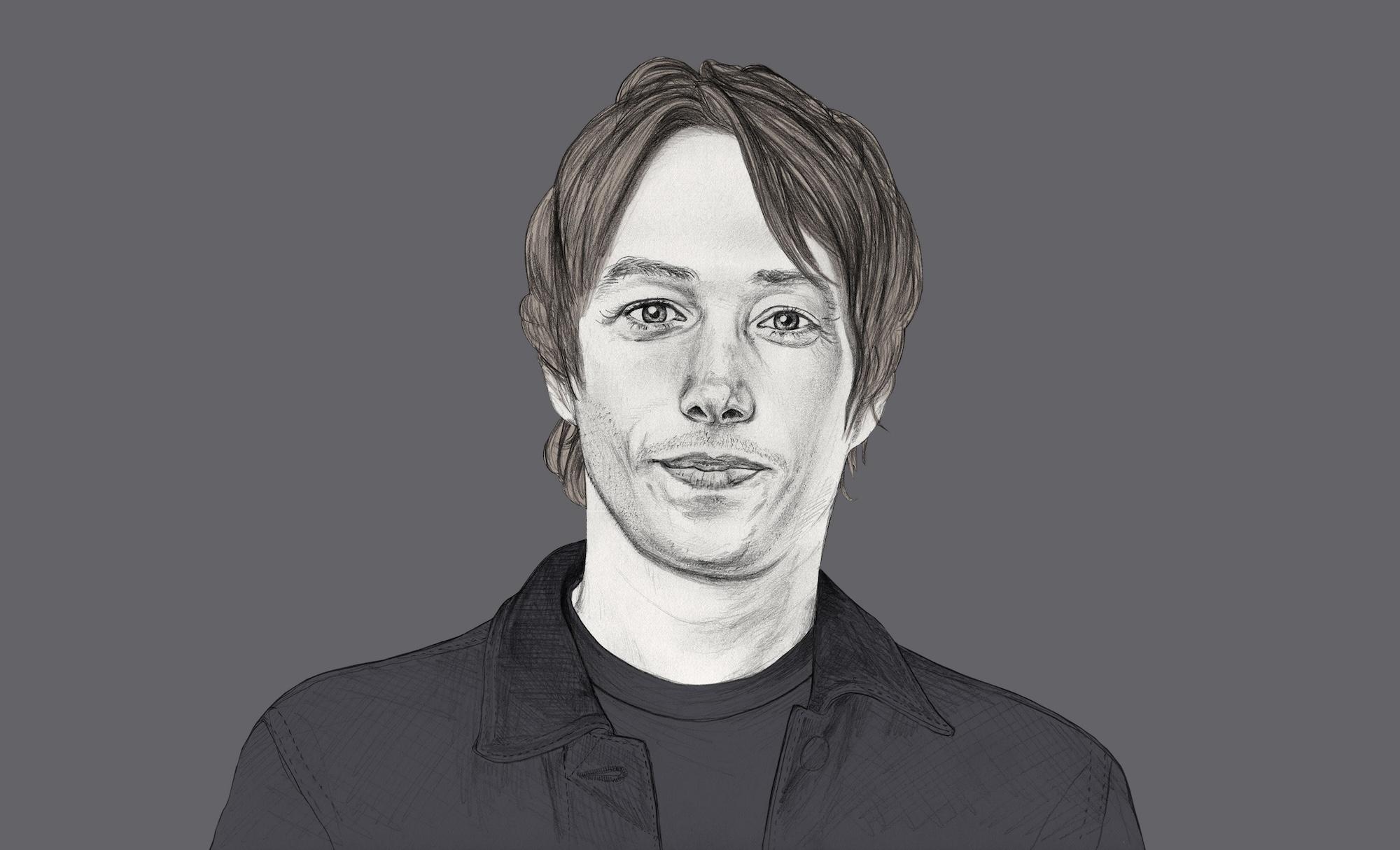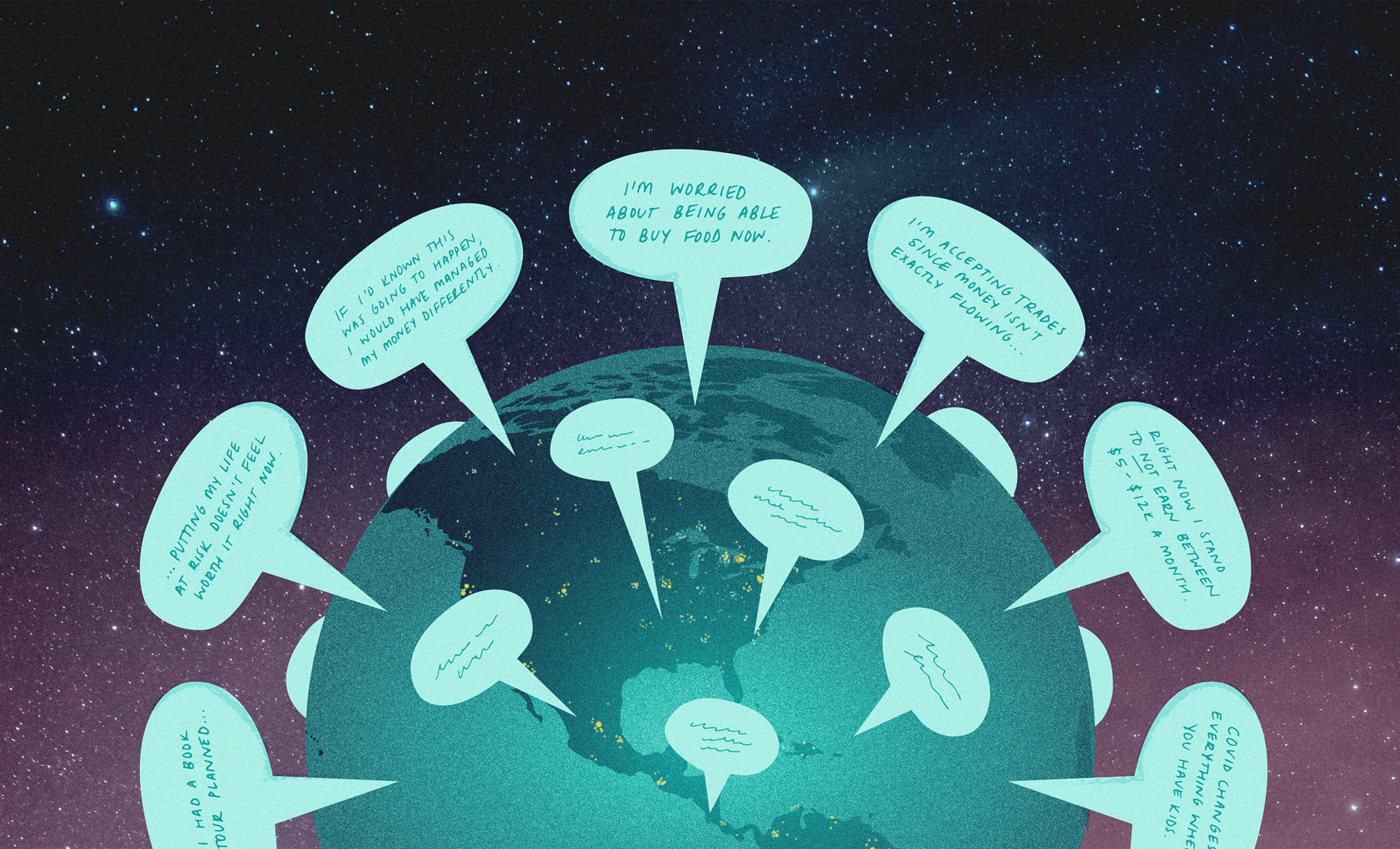
Money Diaries
Director Lauren Greenfield Discovered What Hedge Funders, Porn Stars and Rappers All Have in Common
The woman behind the award-winning documentaries 'The Queen of Versailles' and 'Thin' discusses her new film, 'Generation Wealth,' about how looking rich has become the new being rich.
Wealthsimple makes powerful financial tools to help you grow and manage your money. Learn more
Wealthsimple is an investing service that uses technology to put your money to work like the world’s smartest investors. In “Money Diaries,” we feature interesting people telling their financial life stories in their own words.
My dad came from an immigrant family who arrived in the United States from Russia with almost nothing. He grew up extremely poor and went to the humble public schools in his neighbourhood, but always had a feeling that he could do whatever he wanted in life and become anything he chose to become.
Nowadays, my dad is a professor of medicine who has had a long and successful career. Truly, he’s been a model of the American Dream at work. And among the kids he grew up with, that kind of story is common — people whose futures weren’t anchored to the economic class they were born to. But these days, things have changed. It’s become harder and harder for people to achieve social mobility. We’re in an era where we’ve never seen so much economic inequality, so much concentration of wealth in the hands of the few, and so little social mobility.
When so many people feel shut out of opportunity, what’s left for them to do? As a photographer and filmmaker, I’ve been asking people this question. And the main response I’ve heard? “Fake it ‘til you make it.” My new film, Generation Wealth, explores the ways our culture has shifted from one that prizes hard work and frugality and discretion to a culture that prizes bling and celebrity and narcissism.

Sign up for our weekly non-boring newsletter about money, markets, and more.
By providing your email, you are consenting to receive communications from Wealthsimple Media Inc. Visit our Privacy Policy for more info, or contact us at privacy@wealthsimple.com or 80 Spadina Ave., Toronto, ON.
These days, it’s not about being rich — going rags-to-riches is an impossible dream for most. Now, it’s more about looking rich. Chris Hedges calls this “fictitious social mobility” — it’s the only social mobility a lot of people feel is within reach. In making my film, I interviewed dozens of people about their relationship with money, and the extreme lengths people have gone to in the pursuit of wealth — or in the pursuit of appearing wealthy.
One was a young woman named Daveney, who grew up in a struggling working-class family in Oregon. She had dreams of being an actress, but also dealt with the challenges of economic hardship on a daily level. She told me about a humiliating moment when she went to buy a burrito at Taco Bell but was turned down by the cashier because she only had 88 cents and the food was a few cents more. She stood there crying, while the cashier and other customers looked on.
When she moved to Los Angeles, Daveney discovered that well-paid acting work could easily be found — in porn. Soon, she was living a glamorous Hollywood lifestyle — staying at fancy hotels, renting a penthouse apartment, shopping in Beverly Hills — things that seemed impossible as a teenager back in Oregon. Simple things gave her a feeling of ecstasy, like walking into a Best Buy, picking out a brand-new TV, paying for it in cash, and taking it home. And she loved being able to share her new, ritzy life on social media. Each post — showing off a new purse or a new fancy dress — created a kind of psychic distance from the hardscrabble existence she’d known growing up.
I find it meaningful to see someone who’s accumulated more wealth than I could even imagine, and found that it didn’t make him feel happy, satisfied, or content.
Of course, even as she climbed the ranks in the adult film industry, under the pseudonym Kacey Jordan, and began to party it up with famous people like Charlie Sheen, she learned that becoming a porn star also had its dark side. Though she’d gained the kind of access to money she’d always dreamed of, she’d paid a steep price. Before long, her life went into a tailspin, and she made multiple suicide attempts.
For Kacey, and for others I talked to for my film, gaining wealth had practically become secondary to appearing wealthy. People will go to extreme lengths to create an illusion that they’re something other than who they are. And when you’re trying to be something other than who you are, there's no endgame. You never get there. So, in a way, this feverish consumerism and chronic aspiration to wealth is like an addiction, similar to eating disorders and drug and alcohol addiction. These addictions can take over your life.
Recommended for you
In Atlanta, I interviewed a figure in the hip-hop scene known as Kingpin, who talked about the lengths people in his circle would go to in order to be perceived as wealthy and successful — a man driving a BMW he can’t really afford; teenagers working minimum-wage jobs but wearing $700 shoes. In his parents’ generation, Kingpin said, people wanted to have a college degree. “But now,” he told me, “looking flossy is more important than having ‘Doctor’ in front of your name.” That notion — of style over substance — seems to resonate no matter your class, race, age, or culture, though the way that the bling expresses itself is different for different people. In Atlanta, it might be a brand-new pair of expensive Nikes. In another city, it could be a yacht, an Apple Watch, or front-row seats to Spring Awakening.
Even for those who have actually managed to accumulate extreme wealth, the compulsion to demonstrate that wealth persists. I interviewed a woman in Toronto named Suzanne Rogers, a socialite who has a remarkable collection of Hermés Birkin bags — high-end purses that range in price from $10,000 to $300,000. She has a walk-in closet filled with dozens and dozens of them, in every colour of the rainbow. She admitted that she couldn’t possibly make use of them all — but also that she felt powerless to stop herself from buying them, these tangible symbols of her wealth and privilege.
It seems to me that this kind of blatant materialism started in the 1980s, when Gordon Gekko (played by Michael Douglas in the movie Wall Street) uttered the phrase “Greed is good.” The line was meant, perhaps, to be darky satirical, and Gekko was in truth a real villain. But for some people the ruthless pursuit of money became a lauded strategy, and Gordon Gekko a hero. Fast forward 30 years, and we have Donald Trump in the White House, a man who has done his best to tie his brand to the idea of shameless wealth. Somehow extreme wealth has transitioned from almost a moral failing — associated with greed and avarice — to an ultimate virtue, a measure of someone’s quality as a person.
An extreme example is a former hedge fund manager I talked to named Florian Homm. In his drive for ultimate wealth, Florian made over $800 million dollars and became one of the richest men in Germany. But eventually, he was indicted for fraud and placed on the FBI’s Most Wanted List. Florian told me he had so much money, he owned houses he’d never even set foot in. And he was able to flourish, he said, because the financial system was rigged in favour of the banks and the bankers — hedge fund managers, too. Finance laws were written by people like him, Florian said, to maximize their own profits, while ordinary investors got the short end of the stick.

Hedge-fund manager Florian Homm, 55, Frankfurt, 2014. Photo Courtesy of Amazon Studios. Photo credit: © Lauren Greenfield, all rights reserved.
With law enforcement on his tail, Florian flew to Colombia and went into hiding for years. And despite all of his riches, he told me that money had never brought him happiness, only an increased urge to keep making more of it, spinning his feet on what he calls “a gold-plated hamster wheel.” Personally, I find it meaningful to see someone who’s accumulated more wealth than I could even imagine, and found that it didn’t make him feel happy, satisfied, or content.
So, what’s the antidote? How do we burrow through a culture of materialism and glitz and find a deeper, more authentic happiness? Well, it may sound like the biggest cliché in the world, but the more people I talked to for my film, the more I found that what everyone really needs is love. For people as wide-ranging as Kacey Jordan and Florian Hamm, once they bottomed out, they realized that what really mattered was friends, family, and community. Kacey dropped her porn persona and reclaimed her birth name, Daveney. She returned to her roots in Oregon, began working an ordinary job, rebuilt relationships with her family, and regained a positive sense of herself. Florian had long been estranged from his son Conrad, but worked to become a part of his life again, and their blossoming friendship brought Florian the kind of happiness he’d been chasing for so long, but in all the wrong ways. He told me, “All the money in the world can’t buy this — the love of my children and my wife.”
I recognize this in my own life, too. I have the tendency to throw myself into my work — my own form of addiction — and time with my husband and sons is often the first thing sacrificed. Sometimes I have to ask myself: What’s really important?
And that kind of self-awareness is the other piece of the antidote. We’re blitzed nonstop by so many messages telling us to value appearances and material things that even if you don’t think of yourself as image-conscious, you can’t help but be affected by it. So waking up to the influence that advertising and bling culture has on us gives us agency not to let it knock us off our moorings.
Not long ago, my son Gabriel, who just finished 6th grade, told us he had started to feel self-conscious about his shoes, because he had a pair of old shoes we’d bought for him at Target, and a lot of kids at his school had $200 name-brand shoes. This sparked a lot of discussion around our house, as you can imagine. But the more we talked about it, the less Gabriel felt squeamish about his low-priced shoes. One morning he said to me, “Mom, why would anyone spend so much money on a pair of name-brand shoes, when they’re just advertising a company on their body without even getting paid for it?” My husband gave me a wink. It was like: Okay, our job here is done.
As told to Davy Rothbart exclusively for Wealthsimple; transcript edited and condensed for clarity. Illustration by Jenny Mörtsell.
Wealthsimple's education team is made up of writers and financial experts dedicated to making the world of finance easy to understand and not-at-all boring to read.









